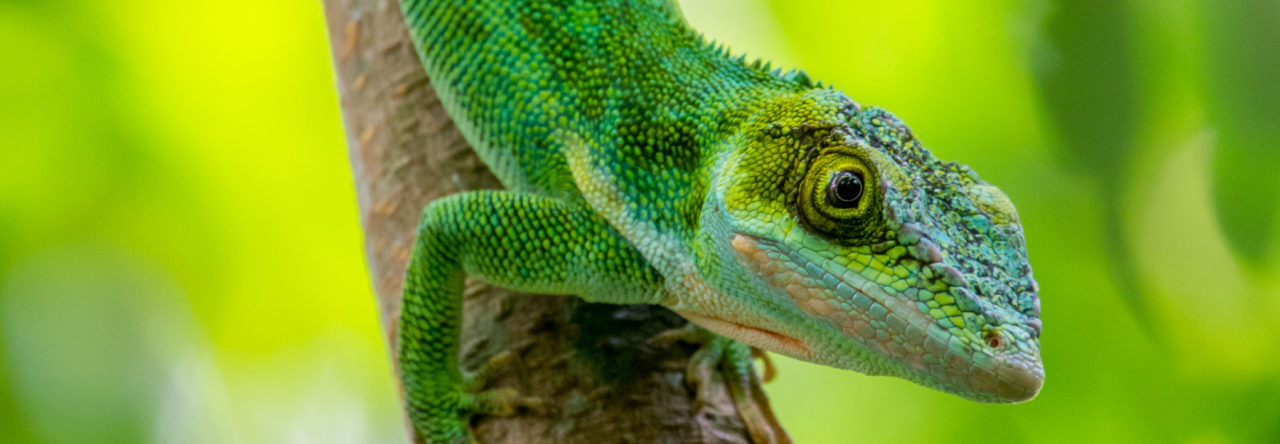
https://www.wikihow.com/Set-up-a-Green-Anole-Tank
New literature alert!
Using Google Trends to Determine Current, Past, and Future Trends in the Reptile Pet Trade
In Animals
Jose W. Valdez
Abstract
Reptiles are one of the most popular exotic pets in the world, with over a third of all described species currently being traded. However, the most commonly available reptiles are typically non-threatened, captive-bred, and/or domestically obtained, which means they are also largely unregulated and unmonitored, resulting in a large portion of the reptile pet trade remaining unknown. In this study, the past, current, and future trends of the most popular reptiles in the pet trade were examined. Google Trends was used to determine the global popularity of the most popular pets from 2004 to 2020 and compared to the results from an online survey sent to individuals involved in the reptile trade. The most popular pets from the previous five years were also compared globally across regions and countries. The results determined that the most popular reptile species during the last decade is by far bearded dragons, followed by ball pythons and leopard geckos. Although the survey results were similar when asked what the top reptiles were, most respondents named ball pythons as the most popular reptile. However, when asked what reptiles had lost the most popularity during the previous decade, the survey respondents named green iguanas, Burmese pythons, chameleons, red-eared sliders, and green anoles, concurring with what was found with Google Trends. The reptiles thought to be more popular in the upcoming decade by the survey participants were blue-tongued skinks, tegus, uromastyx, crested geckos, and ball pythons—most of which did indeed show an increase in popularity during the last decade, as indicated with Google Trends. The results from Google Trends demonstrated that ball pythons and crested geckos have increased their popularity more than any other reptile in the last two decades. Reptile popularity also differed between countries, with bearded dragons the most popular reptile in Australia, Western Europe, the U.S., and Canada. Leopard geckos were the most popular reptile in Italy and Turkey, and ball pythons were the reptile of choice in Mexico, Indonesia, and India. The general finding of this study is that the reptiles declining in popularity were mostly wild-caught or restricted due to regulations, while current and future species were captive-bred and available in many varieties or morphs. The most popular species were also docile, medium-sized, and easy to handle, with relatively simple care requirements. This study demonstrates that Google Trends can be a useful tool for determining relative popularity among reptiles, or any other pet group, with results closely mirroring those obtained through direct surveying of people involved in the pet trade. However, unlike surveys, this analysis is quick, quantifiable, and can show what is popular and in-demand not only at the global level but at much finer scales. Thus, Google Trends can be a valuable tool in many research applications, especially in topics that may otherwise be difficult to monitor and quantify.
- Sex-Specific Population Differences in Resting Metabolism Are Associated with Intraspecific Variation in Sexual Size Dimorphism of Brown Anoles - May 30, 2021
- Ecological Opportunity from Innovation, not Islands, Drove the Anole Lizard Adaptive Radiation - May 28, 2021
- Transcriptomic Analysis of Skin Color in Anole Lizards - May 24, 2021


Leave a Reply